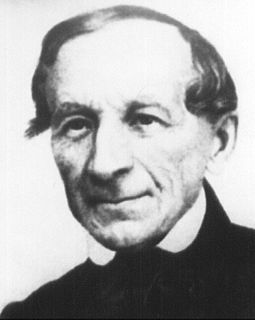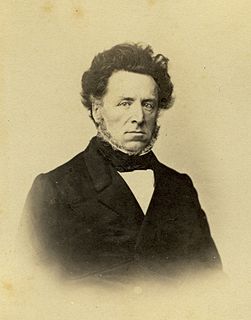
Johann Gottfried Jakob Hermann was a German classical scholar and philologist. He published his works under the name Gottfried Hermann or its Latin equivalent Godofredus Hermannus.

Johann Samuel Ersch was a German bibliographer, generally regarded as the founder of German bibliography.
Gottfried Achenwall was a German philosopher, historian, economist, jurist and statistician. He is the father of Statistics.

Leonhard von Spengel was a German classical scholar.

Johannes Bohn was a German physician who was a native of Leipzig.

Anton Friedrich Hohl was a German professor of obstetrics born in Lobenstein.

Christian Gottlieb Ludwig was a German physician and botanist born in Brieg, Silesia. He was the father of physician/naturalist Christian Friedrich Ludwig (1757–1823) and of Christian L. Ludwig (1749–1784), a physician/scientist known for his translation of Joseph Priestley's scientific experiments.

Adolf Friedrich Stenzler was a German Indologist born in Wolgast.

Hermann Sauppe was a German classical philologist and epigraphist born in Weesenstein, near Dresden.

Ernst Platner was a German anthropologist, physician and Rationalist philosopher, born in Leipzig. He was the father of painter Ernst Zacharias Platner (1773–1855).

Friedrich Ludwig Kreysig was a German physician born in Eilenburg.
Christian Knaut was a German physician, botanist and librarian born in Halle an der Saale. His older brother, Christoph Knaut (1638–1694) was also a physician and botanist.

Karl Ferdinand Becker, was a German writer on music, composer and an organist.

Ludwig Strümpell, after his ennoblement in 1870 von Strümpell, was a German philosopher and pedagogue.
Gustav Hartenstein was a German philosopher and author. He was one of the most gifted followers of Johann Friedrich Herbart.

Wilhelm Gottfried Wachsmuth was a German historian and academic.
August Albrecht Meckel (1790–1829) was a German physician. He was the grandson of Johann Friedrich Meckel the Elder and younger brother of Johann Friedrich Meckel.

Johann Heinrich Kopp was a German physician and natural scientist. He was the father of chemist Hermann Franz Moritz Kopp (1817–1892).

Johann Gottfried Bremser was a German-Austrian parasitologist and hygienist.
Johann Baptist Friedreich was a German forensic physician and psychiatrist. He was a prominent member of the so-called "somatic school" of psychiatry in Germany.















